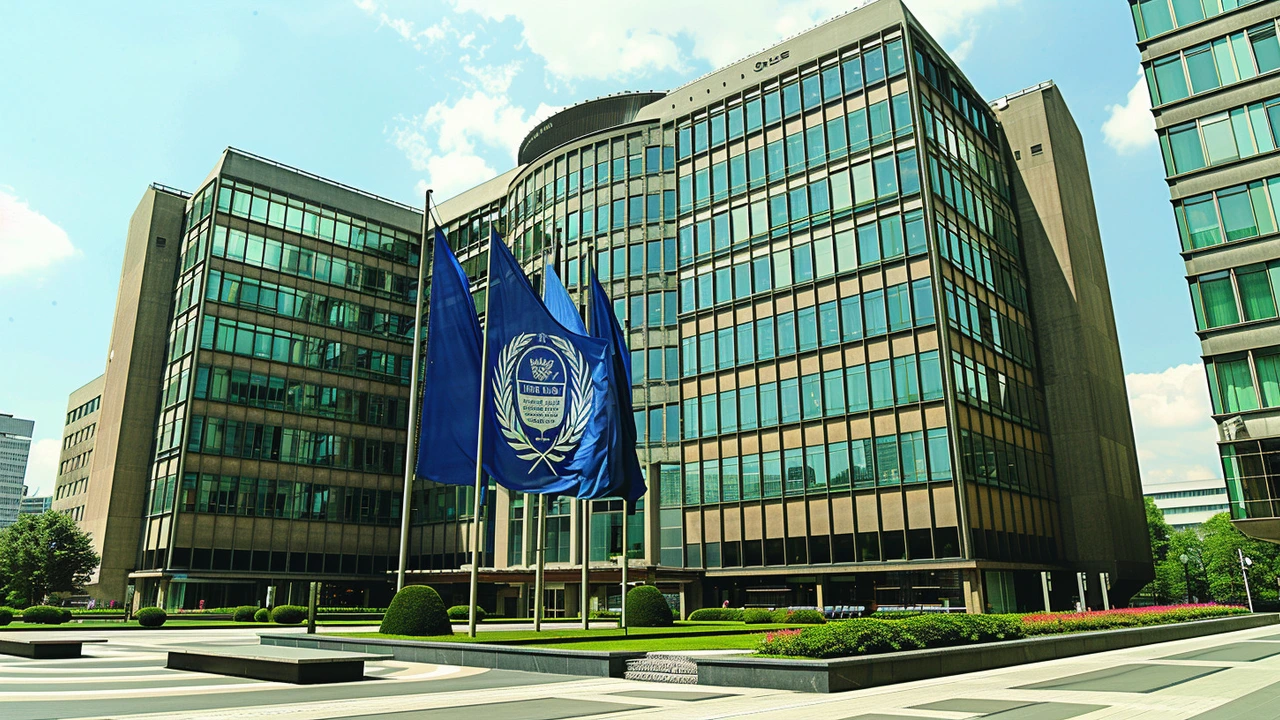ICC Pursues Arrest Warrants for Netanyahu, Sinwar, and Senior Leaders, Seeking Justice for War Crimes
ICC Seeks Justice for War Crimes in Israel and Occupied Palestinian Territory
The International Criminal Court (ICC) has taken a bold step in the pursuit of justice by applying for arrest warrants against several high-profile figures. Israeli Prime Minister Benjamin Netanyahu, Defence Minister Yoav Gallant, and senior Hamas leaders Yahya Sinwar, Mohammed Deif, and Ismail Haniyeh are at the center of these applications, accused of committing heinous war crimes and crimes against humanity in Israel and the Occupied Palestinian Territory (OPT), primarily in the Gaza Strip.
This development, announced on [specific date], marks a pivotal moment in the quest for accountability and justice in the region. The ICC's Office of the Prosecutor, driven by a commitment to uphold international law, has outlined severe allegations against both Israeli and Hamas officials. These include the starvation of civilians, attacks on civilian infrastructure, wilful killings, extermination, persecution, rape, hostage-taking, and torture.
The Path to the Arrest Warrants
The journey to these applications has been long and fraught with challenges. The ICC's investigation, launched in March 2021, sought to uncover potential crimes under the Rome Statute that occurred since June 13, 2014. Despite the significant time that has elapsed, the Prosecutor's office has pressed on, driven by a belief that no one, regardless of their position or power, is above the law.
Agnès Callamard, Secretary General of Amnesty International, emphasized the importance of this move. In her statement, she described it as a crucial step towards justice, underscoring the necessity for all parties in the conflict to be held accountable for their actions. This sentiment reflects a broader international consensus that accountability is essential to breaking the cycle of violence and impunity that has plagued the region for decades.
Documented Violations and Calls for Action
Amnesty International has been a vocal advocate for justice in the Israeli-Palestinian conflict. The organization has detailed extensive evidence of violations of international humanitarian law by both Israeli and Palestinian forces. Their reports highlight indiscriminate attacks on civilians and civilian objects, underscoring the urgent need for thorough investigations and accountability.
The ICC's applications for arrest warrants must now be reviewed and approved by a Pre-Trial Chamber of the Court. This process is crucial, as it will determine whether the necessary grounds exist for issuing these warrants. If approved, it would pave the way for the apprehension and prosecution of the accused, sending a powerful message that the international community is serious about upholding justice and human rights.
International Reactions and Implications
The international community's reaction to these developments has been closely watched. Calls for accountability have been echoed by various human rights organizations, governments, and international bodies. These actions by the ICC may also have significant geopolitical implications, potentially influencing diplomatic relations and international policies regarding the Israel-Palestine conflict.
Many analysts believe that this move could serve as a deterrent for future violations, demonstrating that the international legal system is capable of addressing such grave crimes. However, there are also concerns about the potential for increased tensions and backlash from those implicated or their supporters.
A Closer Look at the Allegations
The specific allegations against the individuals named in the ICC's applications are both extensive and serious. For Israeli officials, the charges include policies that have allegedly led to widespread suffering and loss of life among Palestinian civilians. These actions are said to include systematic attacks on civilian infrastructure and measures that have resulted in the severe deprivation of basic necessities for Gaza's population.
On the Palestinian side, the allegations against Hamas leaders focus on tactics that have placed civilians in harm's way, including the use of human shields and the indiscriminate launching of rockets into Israeli territories. These actions have not only endangered lives but have also violated international norms regarding the conduct of hostilities.
Breaking the Cycle of Impunity
One of the most significant aspects of this case is the potential to break the long-standing cycle of impunity in the region. Historically, both Israeli and Palestinian authorities have been criticized for failing to adequately investigate and address allegations of war crimes by their respective forces. This failure has perpetuated a sense of injustice and fueled ongoing violence.
Amnesty International and other human rights organizations have consistently called for comprehensive investigations and accountability measures. They argue that without such steps, there can be no lasting peace or security in the region. The ICC's actions, therefore, represent a critical opportunity to address these long-standing grievances and set a precedent for future accountability.
Looking Ahead
As the ICC's Pre-Trial Chamber reviews the applications for arrest warrants, the world watches closely. The outcomes of this process will have far-reaching implications, not only for the individuals directly involved but also for the broader conflict and the international legal system.
Should the warrants be approved, the next steps will involve efforts to apprehend the accused and bring them before the ICC to face the charges. This process will likely be complex and fraught with political and logistical challenges. However, it represents a potential turning point in the pursuit of justice and accountability in the region.
Ultimately, the ICC's actions underscore the importance of international law and the principle that no one is above it. As the situation develops, it will be crucial for the international community to support these efforts and to ensure that justice is served for all victims of the conflict.
